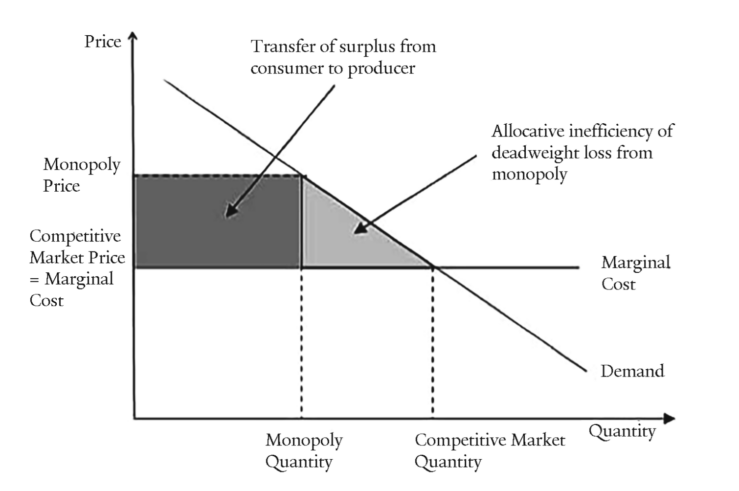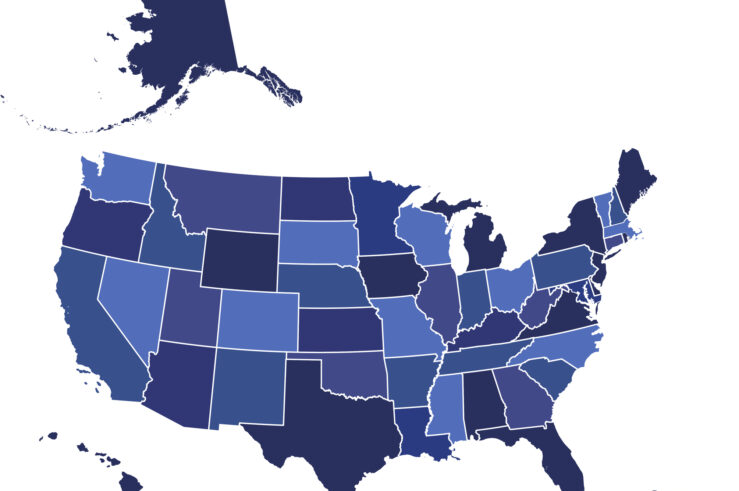Showing results for: “sirius xm merger”
Attention Markets: They Know Them When they See Them
A raft of progressive scholars in recent years have argued that antitrust law remains blind to the emergence of so-called “attention markets,” in which firms compete by converting user attention into advertising revenue. This blindness, the scholars argue, has caused antitrust enforcers to clear harmful mergers in these industries. It certainly appears the argument is ... Attention Markets: They Know Them When they See Them
Toward a Dynamic Consumer Welfare Standard for Contemporary U.S. Antitrust Enforcement
For decades, consumer-welfare enhancement appeared to be a key enforcement goal of competition policy (antitrust, in the U.S. usage) in most jurisdictions: The U.S. Supreme Court famously proclaimed American antitrust law to be a “consumer welfare prescription” in Reiter v. Sonotone Corp. (1979). A study by the current adviser to the European Competition Commission’s chief ... Toward a Dynamic Consumer Welfare Standard for Contemporary U.S. Antitrust Enforcement
Antitrust Policy and National Security Interests
U.S. antitrust policy seeks to promote vigorous marketplace competition in order to enhance consumer welfare. For more than four decades, mainstream antitrust enforcers have taken their cue from the U.S. Supreme Court’s statement in Reiter v. Sonotone (1979) that antitrust is “a consumer welfare prescription.” Recent suggestions (see here and here) by new Biden administration ... Antitrust Policy and National Security Interests
The Internationalization of Due Process, Federal Antitrust Enforcement, and the Rule of Law
The acceptance and implementation of due-process standards confer a variety of welfare benefits on society. As Christopher Yoo, Thomas Fetzer, Shan Jiang, and Yong Huang explain, strong procedural due-process protections promote: (1) compliance with basic norms of impartiality; (2) greater accuracy of decisions; (3) stronger economic growth; (4) increased respect for government; (5) better compliance ... The Internationalization of Due Process, Federal Antitrust Enforcement, and the Rule of Law
How Not to Promote US Innovation
President Joe Biden’s July 2021 executive order set forth a commitment to reinvigorate U.S. innovation and competitiveness. The administration’s efforts to pass the America COMPETES Act would appear to further demonstrate a serious intent to pursue these objectives. Yet several actions taken by federal agencies threaten to undermine the intellectual-property rights and transactional structures that ... How Not to Promote US Innovation
FTC-DOJ RFI on Merger Guidelines: The Agencies Should Proceed with Caution
The Jan. 18 Request for Information on Merger Enforcement (RFI)—issued jointly by the Federal Trade Commission (FTC) and the U.S. Justice Department (DOJ)—sets forth 91 sets of questions (subsumed under 15 headings) that provide ample opportunity for public comment on a large range of topics. Before chasing down individual analytic rabbit holes related to specific ... FTC-DOJ RFI on Merger Guidelines: The Agencies Should Proceed with Caution
Political Philosophy, Competition, and Competition Law: The Road to and from Neoliberalism, Part 2
In just over a century since its dawn, liberalism had reshaped much of the world along the lines of individualism, free markets, private property, contract, trade, and competition. A modest laissez-faire political philosophy that had begun to germinate in the minds of French Physiocrats in the early 18th century had, scarcely 150 years later, inspired ... Political Philosophy, Competition, and Competition Law: The Road to and from Neoliberalism, Part 2
10 Things the American Innovation and Choice Online Act Gets Wrong
The Senate Judiciary Committee is set to debate S. 2992, the American Innovation and Choice Online Act (or AICOA) during a markup session Thursday. If passed into law, the bill would force online platforms to treat rivals’ services as they would their own, while ensuring their platforms interoperate seamlessly. The bill marks the culmination of ... 10 Things the American Innovation and Choice Online Act Gets Wrong
Merger Control’s Misaligned Incentives
Antitrust policymakers around the world have taken a page out of the Silicon Valley playbook and decided to “move fast and break things.” While the slogan is certainly catchy, applying it to the policymaking world is unfortunate and, ultimately, threatens to harm consumers. Several antitrust authorities in recent months have announced their intention to block ... Merger Control’s Misaligned Incentives
FTC Challenge to Nvidia-Arm Vertical Merger: Potential Efficiency Justifications
The Federal Trade Commission (FTC) on Dec. 2 filed an administrative complaint to block the vertical merger between Nvidia Corp., a graphics chip supplier, and Arm Ltd., a computing-processor designer. The press release accompanying the complaint stresses the allegation that “the combined firm would have the means and incentive to stifle innovative next-generation technologies, including ... FTC Challenge to Nvidia-Arm Vertical Merger: Potential Efficiency Justifications
Oldie-but-Baddie: The Revival of an Antitrust ‘Efficiencies Offense’?
Recent antitrust forays on both sides of the Atlantic have unfortunate echoes of the oldie-but-baddie “efficiencies offense” that once plagued American and European merger analysis (and, more broadly, reflected a “big is bad” theory of antitrust). After a very short overview of the history of merger efficiencies analysis under American and European competition law, we ... Oldie-but-Baddie: The Revival of an Antitrust ‘Efficiencies Offense’?
What is the Appropriate Role for State Antitrust Enforcement?
In the U.S. system of dual federal and state sovereigns, a normative analysis reveals principles that could guide state antitrust-enforcement priorities, to promote complementarity in federal and state antitrust policy, and thereby advance consumer welfare. Discussion Positive analysis reveals that state antitrust enforcement is a firmly entrenched feature of American antitrust policy. The U.S. Supreme ... What is the Appropriate Role for State Antitrust Enforcement?
















